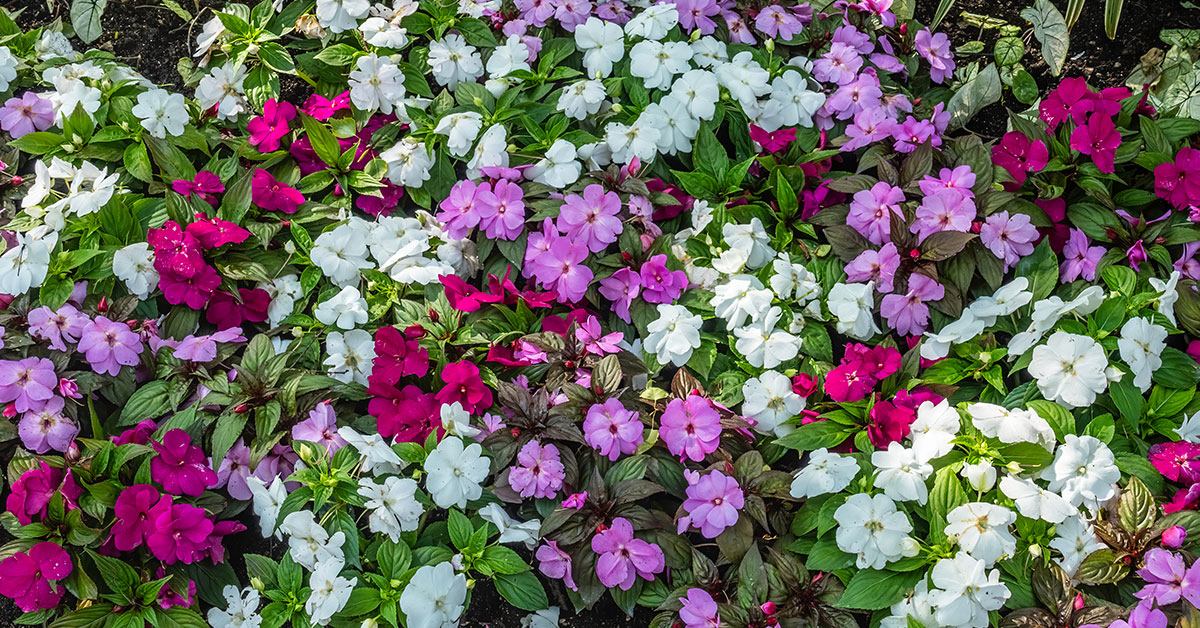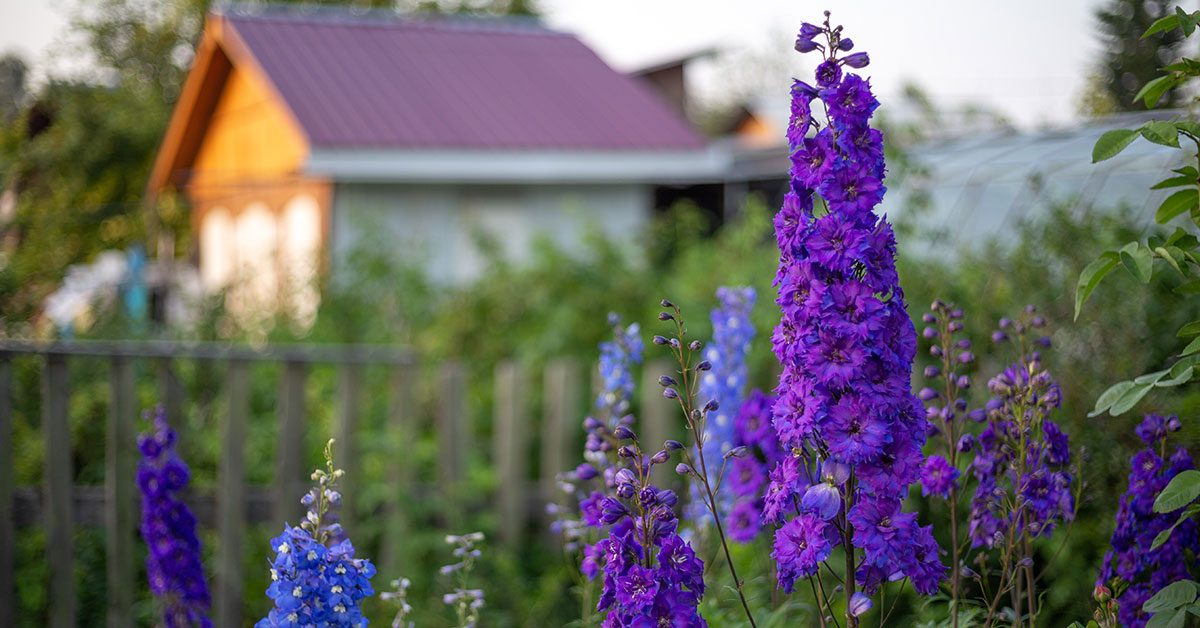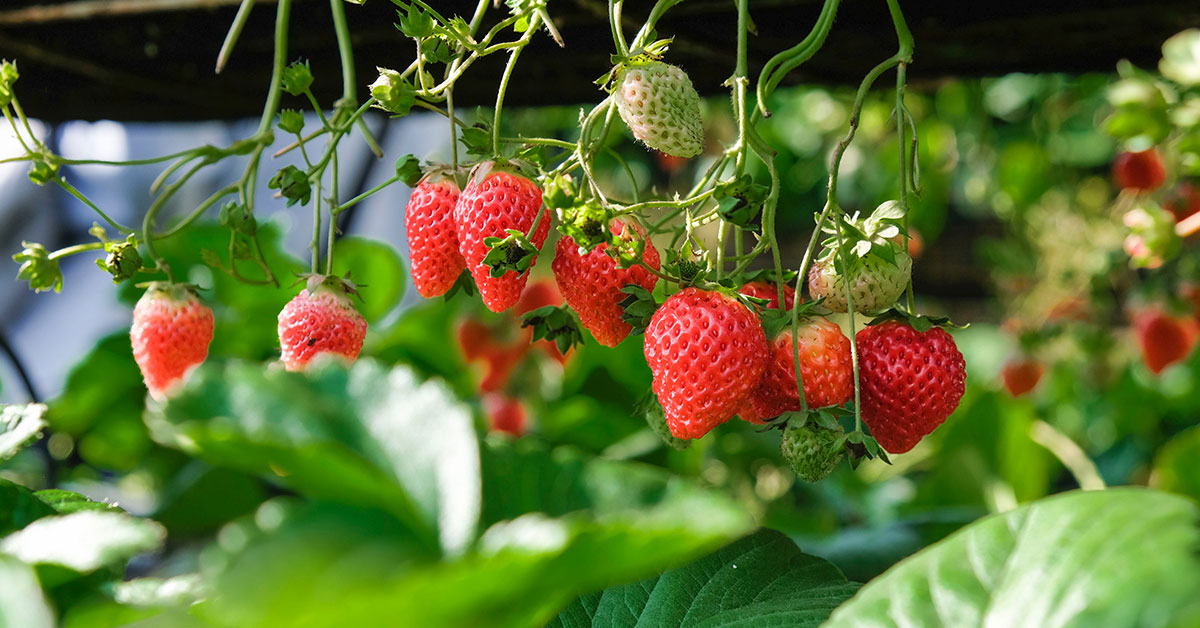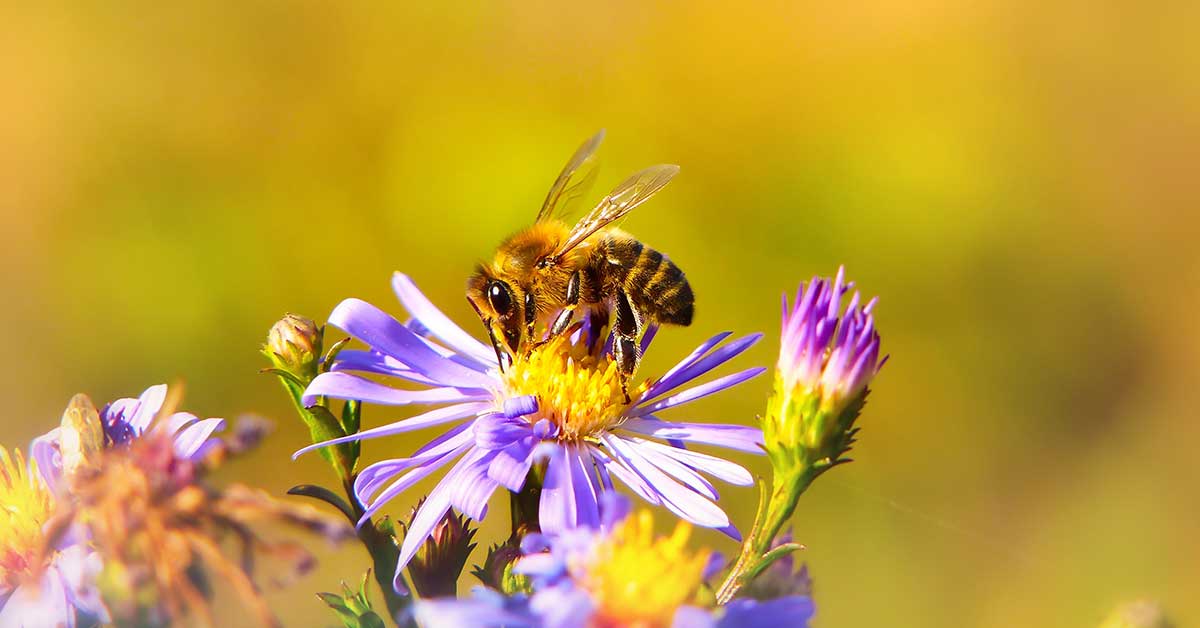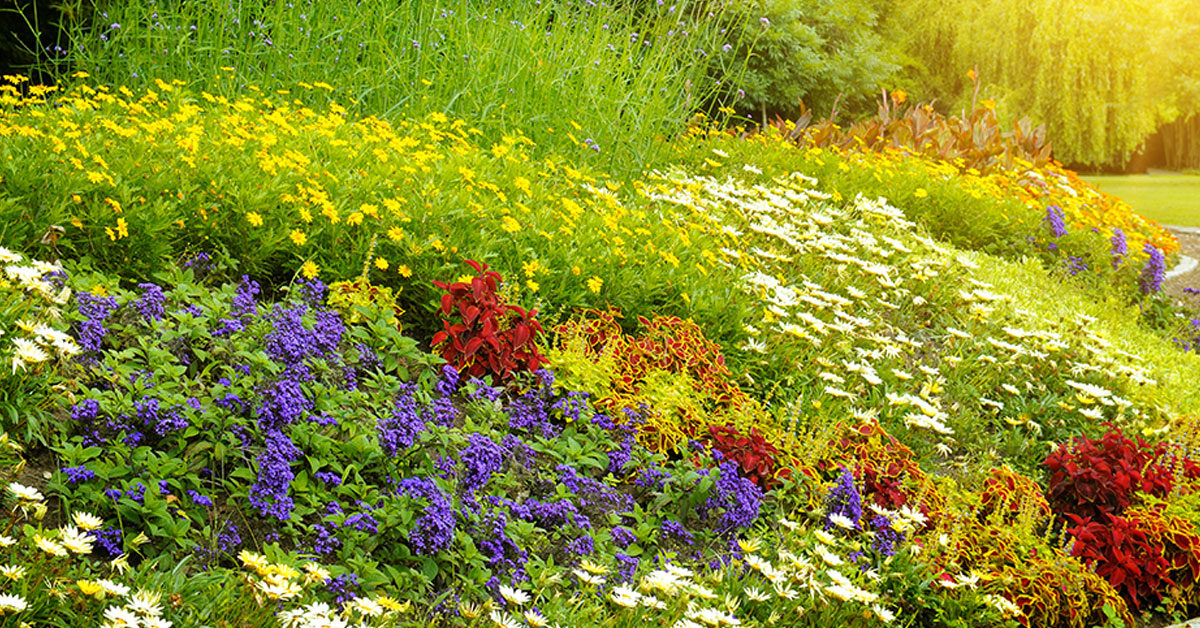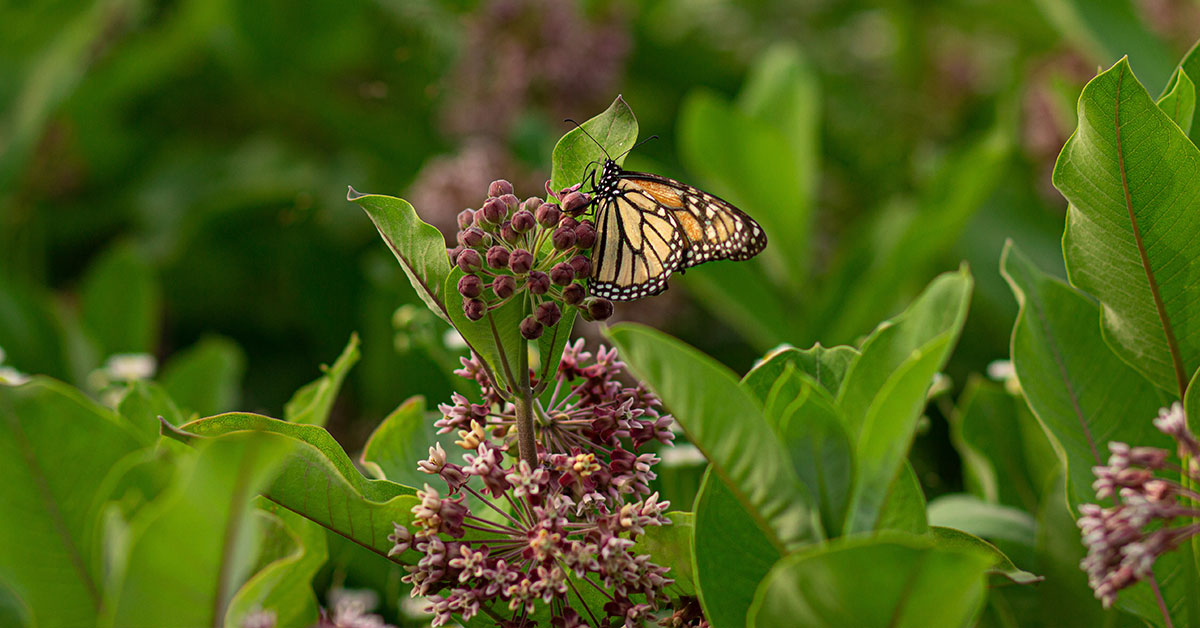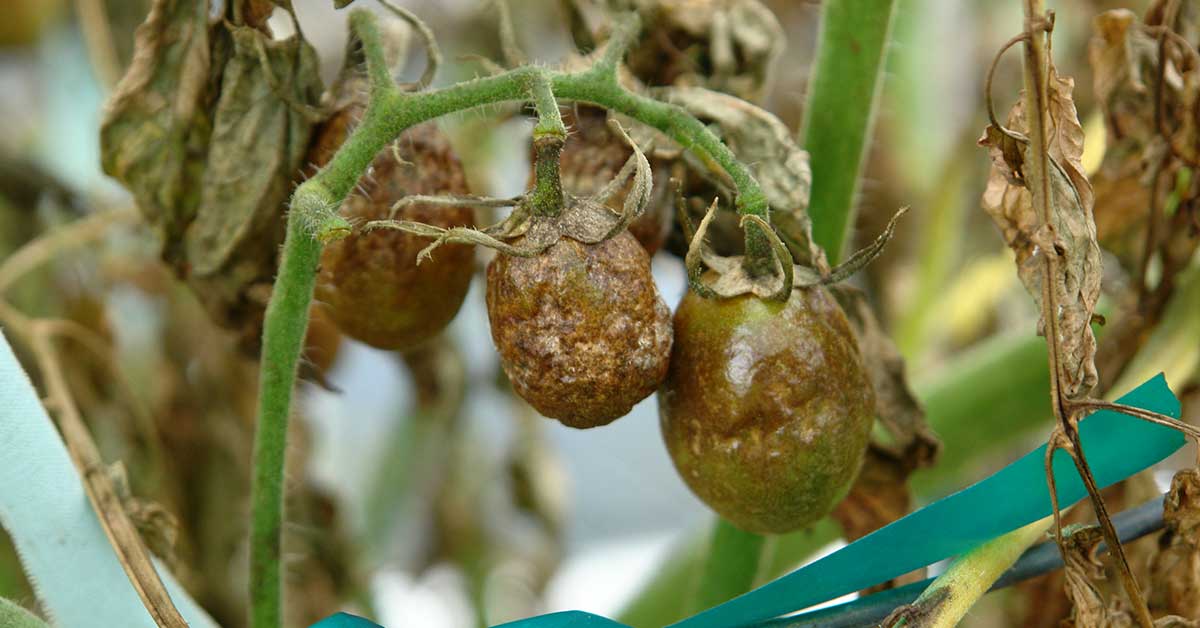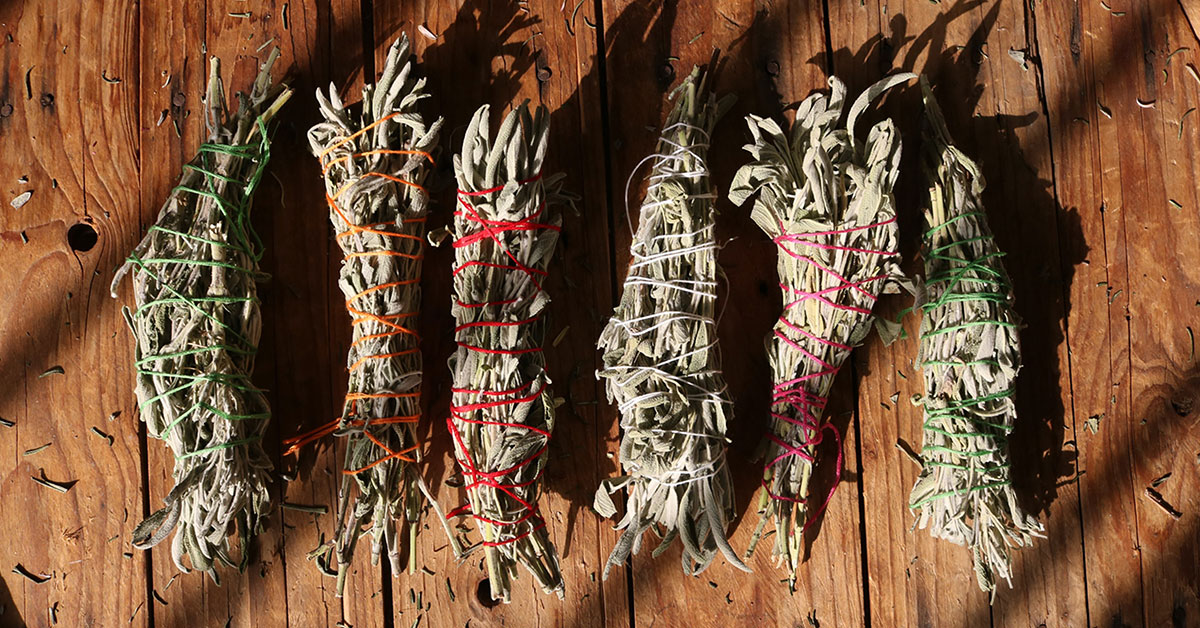As gardeners, we often head to garden centers to find beautiful blooms to enhance our yards. However, some of the most attractive flowers available at these centers are not the best choice for bees and other pollinators. Many of these flowers are treated with pesticides or lack the necessary nectar and pollen to support pollinators. Understanding which flowers to avoid can help you create a garden that truly supports and nurtures your local ecosystem.
In this article, I’m excited to share information about several common garden center flowers that are particularly problematic for bees and pollinators. By choosing plants wisely, you can make a significant positive impact on pollinator health and biodiversity in your garden. Let’s explore which flowers to steer clear of and why!
Impatiens
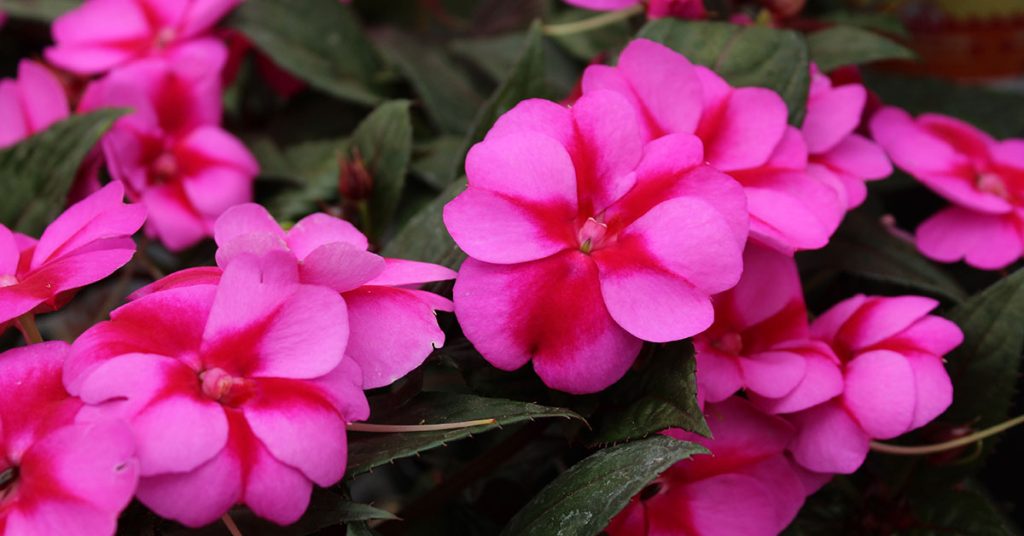
Impatiens are a popular choice for shaded garden areas due to their vibrant colors and ability to thrive in low light. However, these flowers provide very little nectar or pollen for bees and other pollinators. Additionally, they are often treated with systemic pesticides, such as neonicotinoids, which can be harmful to bees even in small amounts.
If you love the look of impatiens but want to support pollinators, consider planting alternatives like native wildflowers or shade-tolerant perennials that offer more resources for bees. Focusing on pesticide-free plants will also help create a safer environment for pollinators in your garden.
Petunias
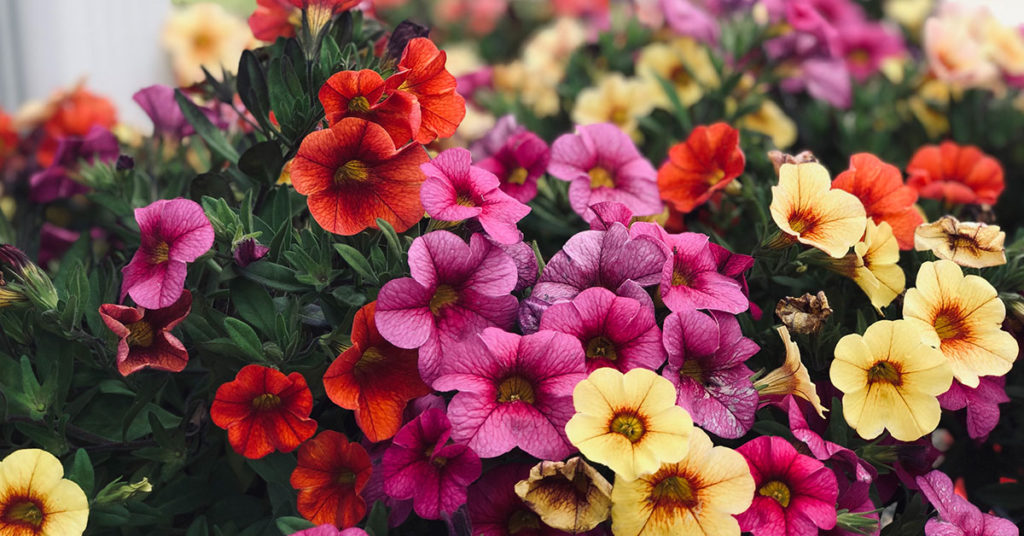
Petunias are another garden center favorite, known for their wide range of colors and prolific blooming. However, many petunias sold in garden centers are heavily treated with pesticides to maintain their appearance and ward off pests. These chemicals can be harmful to bees and other pollinators that come into contact with the plants.
While petunias add a splash of color to your garden, they are not the best choice for supporting pollinators. Instead, opt for native flowering plants or heirloom varieties that are grown without harmful pesticides. This way, you can enjoy beautiful blooms while also providing a safe habitat for bees.
Geraniums
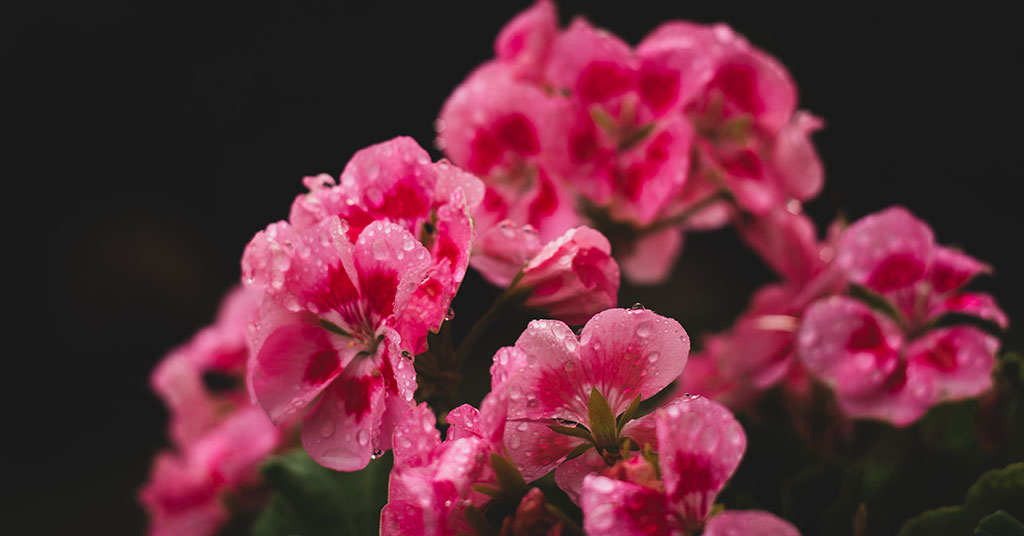
Geraniums are loved for their long blooming season and low maintenance needs. However, they are often not the best choice for pollinators. Many geraniums have been bred to have little or no nectar, making them unattractive to bees. Additionally, they are frequently treated with pesticides that can harm beneficial insects.
If you want to attract bees and other pollinators, consider planting native geranium species or other flowering plants that offer more nectar and pollen. Native plants are often better suited to support local wildlife and can thrive without the need for chemical treatments.
Marigolds
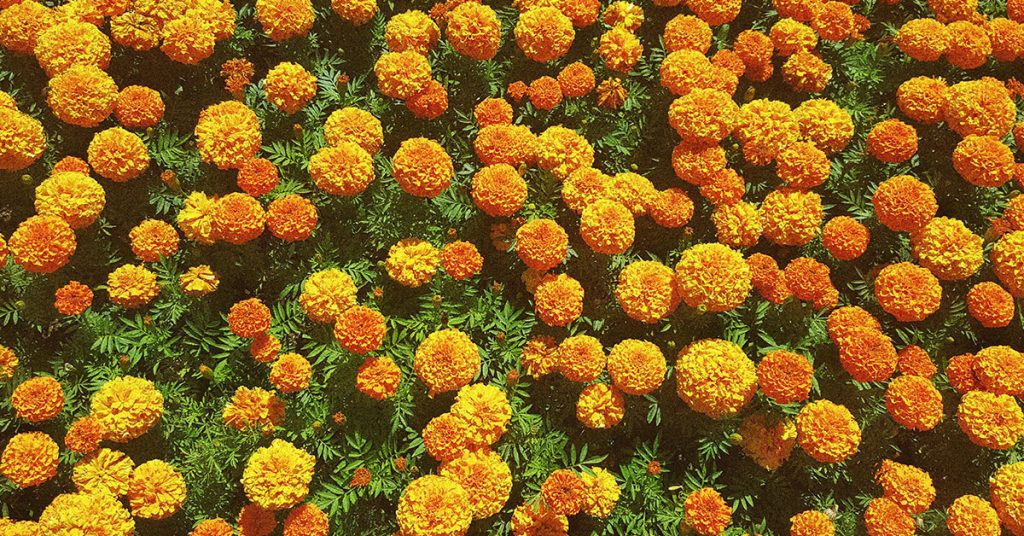
Marigolds are commonly used in gardens for their pest-repelling properties and bright flowers. However, they are typically treated with pesticides, which can be detrimental to pollinators. While marigolds can attract some beneficial insects, the presence of harmful chemicals outweighs the benefits for bees.
To create a pollinator-friendly garden, consider planting companion plants that naturally repel pests without the need for pesticides. Herbs like basil, rosemary, and lavender can deter pests while also providing resources for bees and other beneficial insects.
Begonias
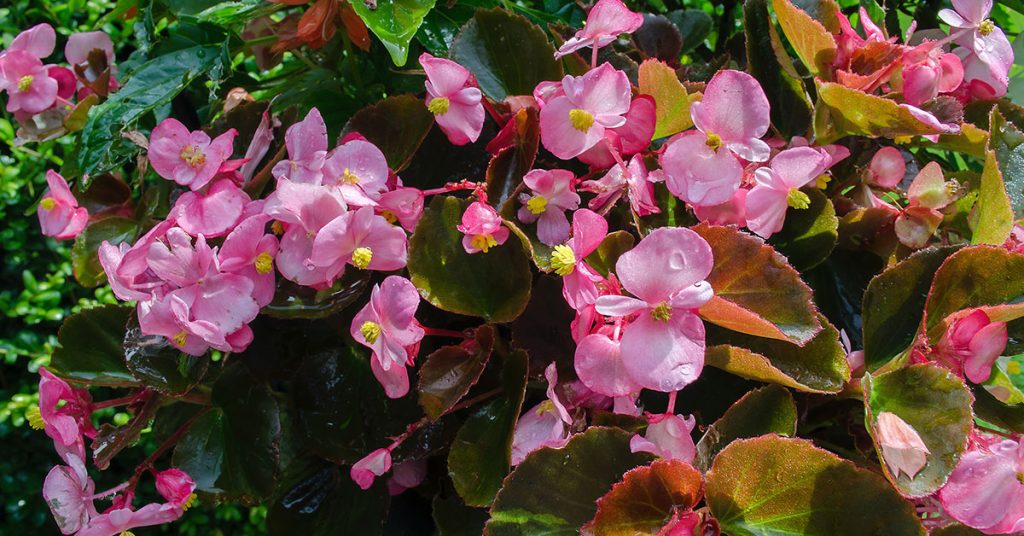
Begonias are favored for their striking foliage and colorful blooms, making them a popular choice for containers and garden beds. Unfortunately, many begonias do not produce enough nectar or pollen to support pollinators. Additionally, they are often treated with systemic pesticides that can harm bees.
For a more pollinator-friendly garden, choose flowering plants that are known to be rich in nectar and pollen. Plants like echinacea, sunflowers, and native perennials can provide the food and habitat that bees need to thrive. Avoiding pesticide-treated plants is crucial to protecting pollinator health.
Pansies
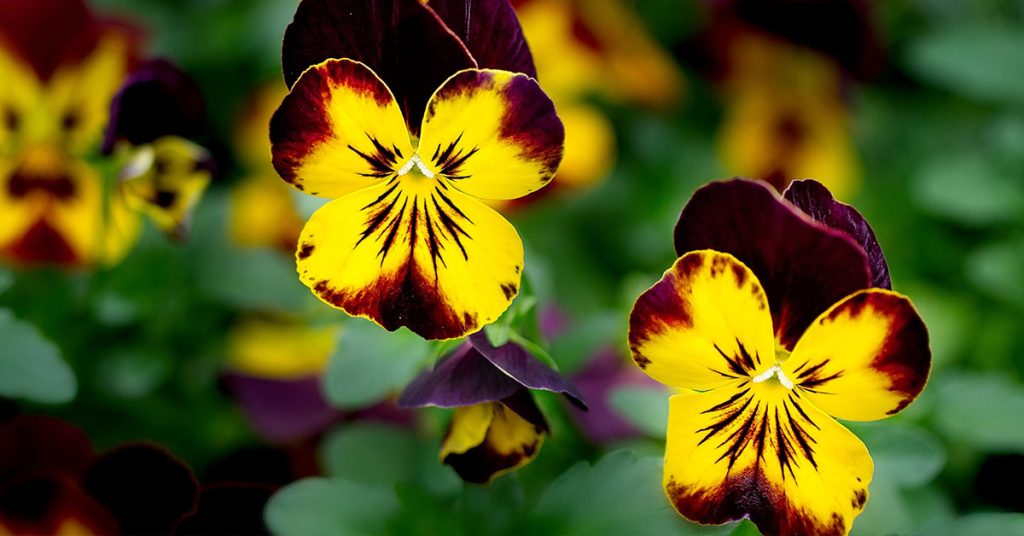
Pansies are a staple in many gardens, especially for adding early spring and fall color. However, they are frequently grown with the use of pesticides to keep them looking their best. These chemicals can be harmful to pollinators, and pansies themselves offer limited resources for bees.
To support pollinators, consider planting early-blooming native flowers that provide ample nectar and pollen. Crocuses, wild columbine, and bleeding hearts are excellent choices for early spring gardens that can benefit pollinators while still providing beautiful blooms.
Hybrid Tea Roses
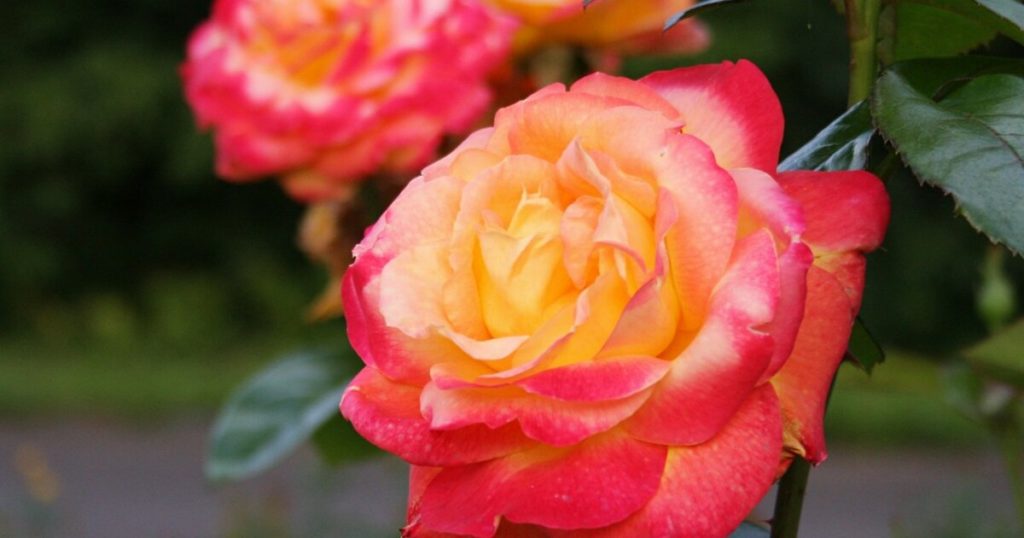
Hybrid tea roses are renowned for their stunning blooms and fragrance. However, these roses are often heavily treated with pesticides and fungicides to maintain their appearance. Additionally, many modern hybrid roses have been bred for aesthetics rather than nectar production, offering little to no resources for pollinators.
If you love roses, opt for old-fashioned or heirloom varieties that are grown without pesticides and are more likely to produce nectar. These roses can still provide the beauty you desire while also supporting bees and other beneficial insects in your garden.
Chrysanthemums
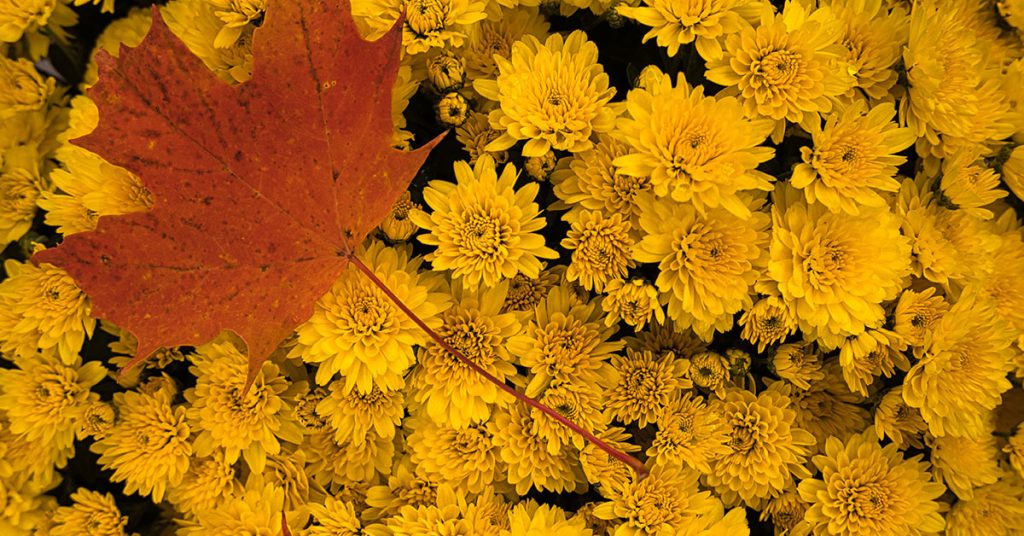
Chrysanthemums are popular for their vibrant fall colors and long-lasting blooms. However, they are commonly treated with pesticides, including neonicotinoids, which are particularly harmful to bees. Additionally, some chrysanthemum varieties do not produce much nectar, making them less attractive to pollinators.
To create a fall garden that supports pollinators, consider planting native asters or goldenrods, which are rich in nectar and pollen. These plants can provide critical late-season resources for bees and other pollinators, ensuring they have the food they need to survive the winter.
Zinnias
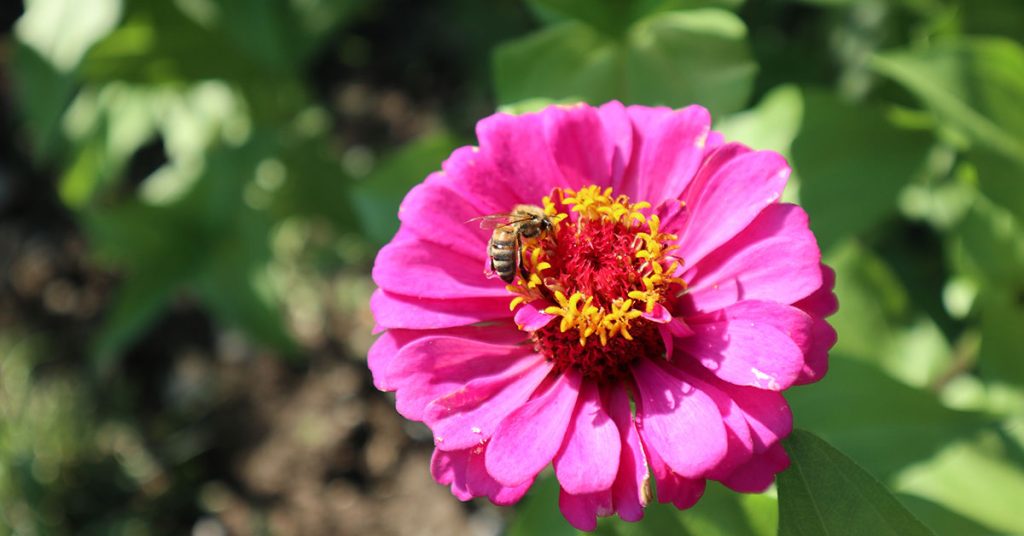
Zinnias are a favorite for their bright colors and easy growth. While they can attract some pollinators, zinnias sold in garden centers are often treated with pesticides. These chemicals can pose a significant risk to bees and other beneficial insects that visit the flowers.
To support pollinators, choose organically grown zinnias or opt for native flowering plants that are pesticide-free. Maintaining a diverse garden with a variety of blooms can help create a robust ecosystem that supports pollinators throughout the growing season.
Lilies
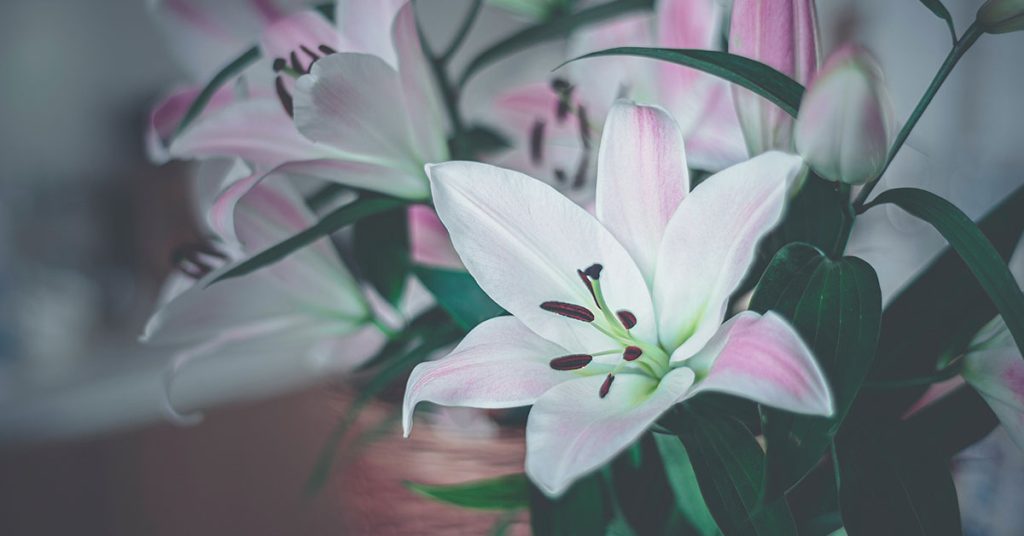
Lilies are admired for their elegant flowers and strong fragrance. However, they are typically grown with the use of pesticides to protect against pests and diseases. These chemicals can be harmful to pollinators that come into contact with the flowers. Additionally, lilies do not produce as much nectar as other flowering plants, offering limited benefits to bees.
For a pollinator-friendly garden, consider planting native flowering bulbs like alliums or native lilies, which are more likely to provide the resources pollinators need. Avoiding pesticide-treated plants and focusing on native species can help support a healthier garden ecosystem.
